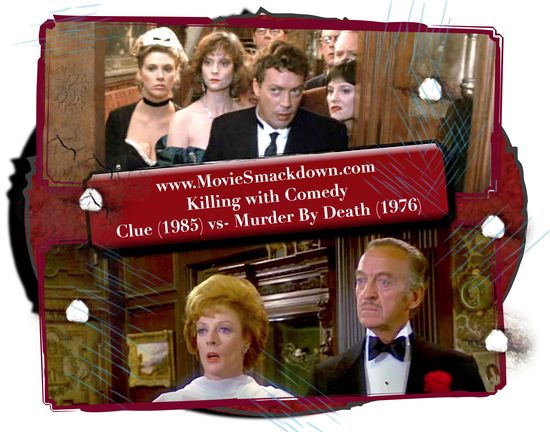
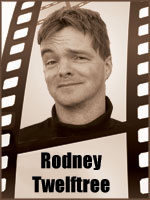 The Smackdown
The Smackdown
Murder – The Ultimate Crime. Comedy – The Ultimate Genre. Therein lies the rub! Can you make a murder mystery into a successful comedy? After all, murder isn’t all that funny. “Murder By Death,” written by Neil Simon and directed by Robert Moore, was an homage to the great detectives of old, such as Charlie Chan, Sam Spade, Miss Marple, and others. “Clue,” directed by Jonathan Lynn and set in the world of the board-game Cluedo, tapped into the psyche of the 80’s and evolved into a slapstick styled comedic farce, driven by a star turn from Tim Curry. One is a sly indictment of detective clichés, the other, an innuendo ridden cliché of the genre itself: together, both these films represent the zenith of mystery comedy of their times. But which one is the better film? Let’s turn off the lights, shine a torch up on our faces, and prepare to get utterly scared in this murder mystery showdown!
The Challenger
While Hollywood is littered with the failure of multiple films based on games, toys and even amusement park rides, I tend to think that among the earlier attempts to squeeze every drop of commercial profit from an alternate medium than film by making it into a film, “Clue” is one of the more infamous. A cinematic flop which has since gained a small cult following, “Clue” is based upon the board-game Cluedo, which was released to the public in the 40’s and has been a “family favorite” ever since. In much the same way that Monopoly is. In the 80’s, the procedure was simple. Take the basic premise of the game, in this case, trying to guess “whodunnit” in a murder, add in the characters of the game (in this case, a half dozen mysteriously named people who are thrown together into a house) and try desperately to bring the game to life.
The premise of “Clue” is actually quite a cool one: after all, the original board game has entered the pop culture consciousness, and the term “it was Mr X in the Y with the Z” has become synonymous with mystery in much the same way Yippe Ki Yay has become indelibly linked to Bruce Willis. The film is set in the mid 50’s, New England, with three women and 3 men arriving at a house for a party, thrown by the equally mysteriously named Mr Boddy. We learn that each character (named after their corresponding one in the board-game) is being blackmailed by Boddy, and they have been given pseudonyms to protect their identities. The fact that they are being blackmailed is motive enough for a murder to take place, which it does, in no short order. And thus begins the real mystery: who is Mr Boddy, who killed him, and why are more and more people in this creaky old mansion dying off in various rooms? Tim Curry, as Wadsworth the butler is the linchpin of the whole film, carrying much of the comedy on his shoulders. He leers and grins his way through the film, thundering theories and ideas towards the viewer in such a way as to try and confound and confuddle us, before the obligatory revelatory scenes at the films conclusion.
It’s a murder mystery cliché, with much ridicule coming from the fact that the whole movie revels in it’s own self-deprecating sense of humor: everybody’s in on the joke, except the poor dead fellow in the corner. And, with the original film having three alternative endings (you had no idea which one you’d get in the cinema, and all three are available on the DVD version currently available) there’s plenty of red-herrings, loose ends, and diabolical death scenes to get through before you figure out “whodunnit”!
The Defending Champion
I’ll start out on “Murder By Death” by simply stating that Truman Capote used to freak me out. When “Murder by Death” was released in 1976, I was barely out of diapers, and once the film became a regular staple on Australian TV during the 80’s, I was able to wrap my brain around the convoluted and (I thought in my juvenile way) quite clever plot. “Murder By Death” took some major acting talent, cast them as famous literary and cinematic detectives, and lampooned the plot devices and clichés of the murder mystery art-form itself. And when I say major acting talent, I mean major acting talent. David Niven, Alec Guinness, Peter Sellars, Maggie Smith, Peter Falk, James Cromwell, Eileen Brennan and James Coco all take starring roles as the roll call of famously familiar characters take shape. Miss Marple, created by Agatha Christie, is portrayed here as Miss Marbles (Elsa Lanchester). Peter Falk takes on the hard-bitten American detective developed in “The Maltese Falcon” (you know, “she walked into my office, and I knew she was dangerous”) Sam Spade, while David Niven and Maggie Smith play the upper-crust English aristocratic sleuths based on the “Thin Man” films. The film is set in a creepy mansion owned by one Lionel Twain (Truman Capote, seriously in need of sun), the man who will instigate the mystery to wit these detectives must solve. You see, Twain has invited the greatest living detectives on Earth to prove to them that he is the greatest detective of all: he challenges them to solve a murder that will occur at a predetermined time. Written by stage and screen uber-scribe Neil Simon (who penned plays such as “Biloxi Blues,” “The Odd Couple” and “Lost In Yonkers”), “Murder By Death” is a mix of slapstick and farce, although the major strength of the film is its dialog, of which Simon revels in the byplay between his disparate characters.
The Scorecard
On the surface, both of our films here are essentially the same. A bunch of people in a house where a murder is going to be committed (or is committed) and the challenge to solve the crime before the police show up. One film revels in it’s star wattage, as attested by the inclusion of the reluctant icon Truman Capote, and the other more screwball styled on farce and slutty innuendo (well, it was the 80’s!). Yet they both manage to do the same thing. In deciding which of the two films on offer today would be the pinnacle of murder/mystery comedy, we must first analyze the structure and capabilities of each film, the motives behind them, and the potential for success based purely upon each of their given criteria.
“Murder By Death” has suffered a lot in the intervening years since it’s release in the 70’s. Which is not entirely unexpected, considering that modern generations of viewers would have no idea who the characters in the film are representative of. Sam Spade, and his sexually frustrated secretary (Eileen Brennan, who appears in both our nominated films… more on this fact a little later), as well as Milo Perrier (modeled after Christie’s Hercule Poirot) and even Charlie Chan are almost unrecognizable in todays world of “CSI” and other acronymically challenged crime shows. That’s not to say that the film itself is poorer for it; it’s just the context in which one has to review this film is perhaps a lot more difficult to adhere to. For me, though, I think “Murder By Death” is a film made simply to get some of cinemas biggest names in the same film together. It probably didn’t matter if the film was garbage, since the draw on the marquee was inclined to turn a profit regardless of critical success. David Niven and Peter Sellars were, at the time this film was released, at the peak of their cinematic powers, their comedy stylings so polar opposite and yet so finely attuned that a true film buff would go giddy at the merest whiff of an on-screen pairing. Chuck in Columbo himself, Peter Falk (who was born to play the hard-boiled detective character, and then forever typecast as one) and Oscar winning Alec Guinness as a blind butler (who would have thought?!) and you have potential cinematic gold.
Unfortunately, “Murder By Death” is hamstrung by a script that never really manages to go anywhere interesting. Neil Simon’s pedigree as a writer cannot be faulted, and there are moments of real comedy genius at work in his script. The actors, each doing pitch perfect performances of their homage characters, are superb, with the possible exception of James Coco as Perrier, and the production design is pretty decent for mid-70’s cinema. So why does the film tend to drag? I lay the fault directly on the shoulders of director Robert Moore for some lazy direction and truly insipid editing. The film lacks any real spark, something it should most certainly have in abundance considering the cast involved here. The script sparkles with dry wit, probably lost on a more modern audience today, but for those with cerebral intellect able to cogently deal with humor in dialog (as opposed to the modern slap-stick-gross-out “comedy” Hollywood currently churns out) you’ll find a lot to appreciate in this screenplay.It’s the fault of some pacing issues that causes “Murder By Death” to become more of a trial that it needed to be.
“Clue,” on the other hand, has plenty of spark, but just a lack of decent characterization in the film (save for Curry’s Wadsworth role). Director Jonathan Lynn can’t be faulted for injecting a zesty verve into his film, the editing and camera-work are all brilliantly conceived for the style and tone of the movie. The cast give their all, and generally succeed in their respective roles, however, there’s still something missing from the proceedings that makes it palatable for the viewer. I think it’s a lot to do with the uneven acting performances and ludicrous plot twists that threaten to undo all the good work in the film’s opening act. “Clue” opens brilliantly, setting up the film for an entertaining comedic farce, however, I think it eventually surpasses what most people would regard as good comedy and slides almost desperately into utter stupidity. The wonderful Colleen Camp (as French main Yvette, the token “bimbo” character of the story) has an absolute ball, as does Madeline Kahn as the spooky Mrs White. Eileen Brennan, a decade older than her time in “Murder by Death” and made up to look positively hilarious as Mrs Peacock, shows her class with such desperate material: the script really does nobody any favors in terms of character development or anything resembling logic. Michael McKean gets short thrift as a gay US government employee with a significant skeleton in the closet; his scattershot portrayal of Mr Green is uneven at best. Christopher Lloyd is strangely obscure as Professor Plum, his role limited to side comments and it’s sad to see him barely make an impact. Lesley Anne Warren has an absolute ball as Miss Scarlet, the Madam from a brothel in Washington. Her lip sneers and haughty sexuality are a pure delight to watch, and one gets the impression that of all the cast save Curry, she had the most fun.
But by far the biggest thing about “Clue” is the hysterically over-the-top performance from a snooty Tim Curry, as Wadsworth, the butler. He’s the linchpin of the film, the core of the plot and the tentpole on which the film hangs: unfortunately, Curry isn’t a leading man, and his somewhat smarmy looks and desperate mugging to the camera undermine what could have been a revelatory turn as the only person who understands what’s going on. The film becomes more (and more) manic as people start dropping dead, and Curry’s increasingly zany performance undercuts the humor of the film, transporting it from simple, elegant mystery comedy, to outright farce. While the rest of the cast may flounder underneath the weight of this film’s own self indulgent flamboyancy, Tim Curry gives it his all, and one can only suggest that perhaps he’s the reason this film has any positive energy at all.
The Decision
Neither of these films were ever going to win an Oscar, they’re played almost strictly for laughs, and generally speaking, both casts do quite well with the material they’re given. “Murder By Death” seems more structured and internal, while “Clue” offers a more farcical approach to the material, which while not being a bad thing, is perhaps best left to cinema of the 30’s and 40’s. Modern audiences probably no longer appreciate it (although, it must be said, there is always a need for it somewhere!) and I guess, by this standard, “Murder By Death” would be the better of the two films. However, even taking into consideration the enormous cast, the sheer star power on display in “Murder By Death,” “Clue” remains the more enjoyable of the two films. It’s faster paced, a little more quick-witted, and has the more genuine charm of this genre of movie. In this battle of murder comedy, “Clue” does it in the lounge-room, with the lead pipe.

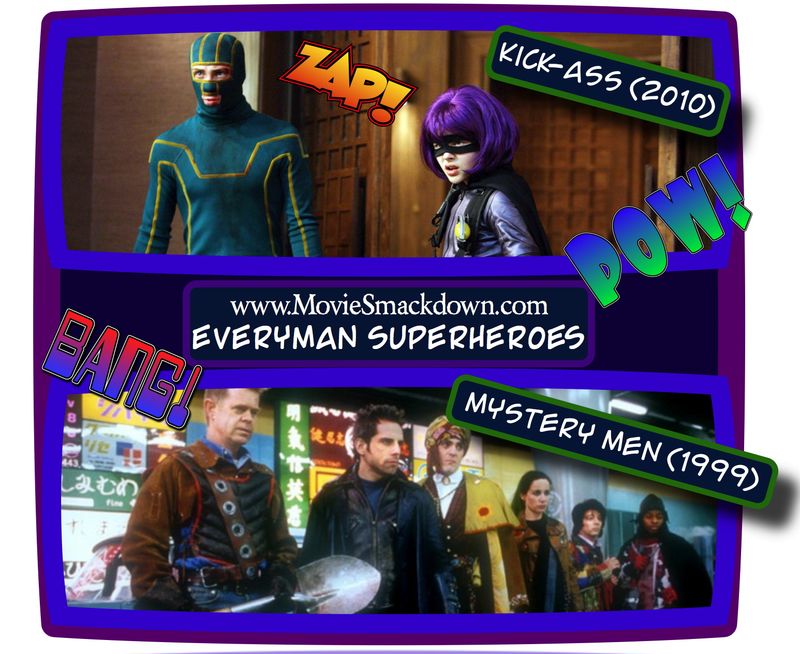
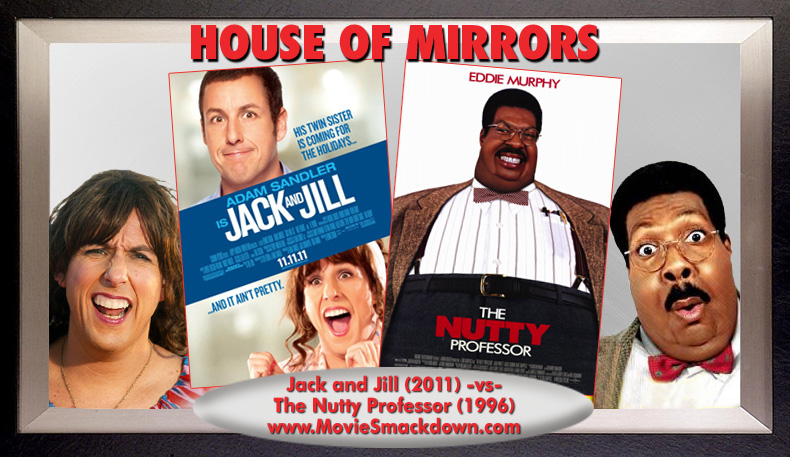
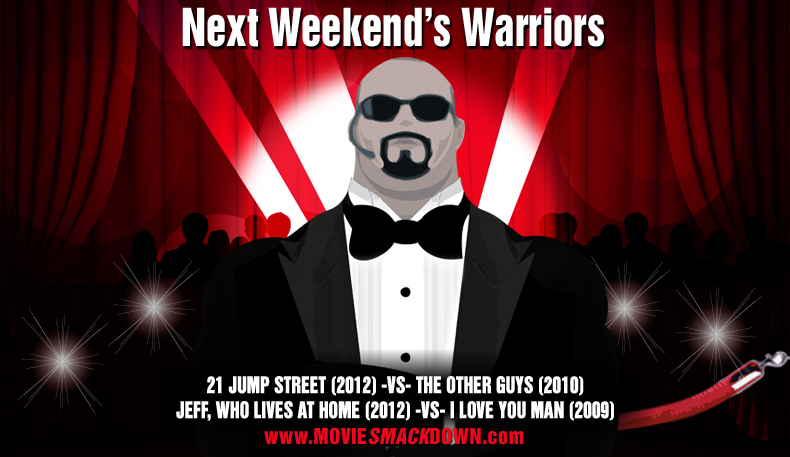
Come on… there is no contest here at all. Murder By Death is way way way better, and I mean it is not even slighty kind of close.
Murder By Death has dozens and dozens of brilliant lines in it, and the film uses edgy lines that would not be allowed in comedies of today, so it gets even more points for that.
Clue is decent, but it’s a failure as a film in structure, and I think the actors don’t really play of each other as well as we would all like. It is an OK film.
Murder By Death is an all time classic comedy with fantastic performances from far better actors.
I don’t know how many times I’ve seen Murder By Death…ten? A dozen? At the risk of dating myself, I saw this movie in the theater at the time of its original release. I laughed so hard I cried. I’ve seen Clue a few times (my daughter–born in 1988–loved it and watched it on video many times). To me there is no doubt that Murder By Death is the better film, it is funnier, more clever and more interesting overall. There are lines in MBD that I find myself throwing off from time to time like James Coco’s “I’m a Belgie not a Frenchie”, and Maggie Smith’s “Where is my Dickie?”, among many others. I hate to sound trite, but they don’t make movies like that anymore. Now comedies are all about hangovers, bodily function jokes and other stupid juvenile humor. You are right, neither of them will ever will an Oscar, but sometimes you just want a silly, funny, sharp and witty movie that doesn’t make you feel like you need to shower afterward.
I have seen both of these films recently, and my favourite of the two is “Murder by Death” – the script is much more witty, in particular the heated exchanges between the detectives as they attempt to investigate the apparent murders (especially Miss Jessica Marbles retort to Perrier “Up yours fella!”)